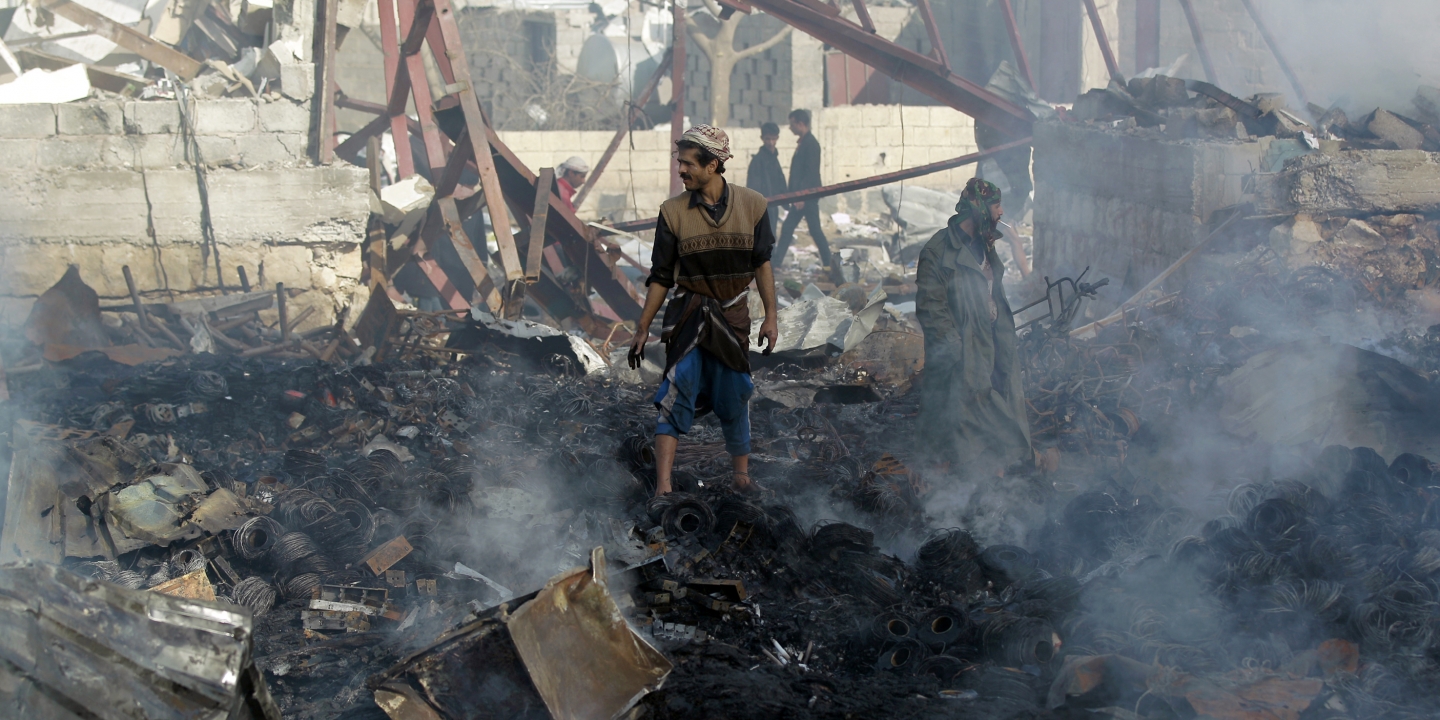On 24 May 2016, UK Minister for Defense Procurement Phillip Dunne claimed that “no UK-supplied cluster weapons have been used […] in the current conflict in Yemen.” Dunne’s statement contradicts evidence gathered by Amnesty International showing that at least 16 people have been killed by the use of cluster munitions in Yemen from July 2015 to May 2016, including armaments made in the UK. The Saudi-led coalition used British manufactured “BL-755” cluster bombs in an attack on the al-Khadra village, for example. Lama Fakih, Amnesty International’s senior crisis response advisor, critiqued the UK, saying, “it is utterly shameful to evade responsibility, denying the use of UK-supplied cluster munitions in Yemen by the Saudi Arabia–led coalition.”
Saudi Arabia has faced increasingly severe international criticism for its role in the Yemeni civil war since it led a joint military force into the country in March 2015. The United Nations (UN) recently added the Saudi-led coalition to a list of child rights violators after determining it was responsible for approximately 60 percent of the 785 children killed in Yemen last year. Although the UN has since reversed this decision pending review, after Saudi Arabia and several other GCC states reportedly threatened to revoke funding for UN projects, the Office of the Commissioner for Human Rights (OHCHR) confirmed the majority of civilian casualties were carried out by the Saudi-led coalition. Saudi-led forces also face allegations of unlawfully targeting cultural and religious sites, schools, displaced-persons camps, hospitals, and other civilian locations.
Despite numerous reports of Saudi Arabia violating international and humanitarian law, the US and UK – among other countries – continue to provide extensive military assistance to the kingdom. According to the Defense Security Cooperation Agency, the US has sold approximately $60 billion worth of arms to Saudi Arabia since 2010.
Moreover, on Thursday, 16 June 2016, the US House of Representatives voted against a proposal to ban the sale of cluster munitions to Saudi Arabia. Rep. Hank Johnson, D-Ga., supported the failed ban, saying, “Earlier this year, the Saudi-led coalition dropped cluster bombs in Yemen’s capital of Sanaa, specifically targeting known civilian neighborhoods.” According to Representative Rodney Frelinghuysen, R-N.J., chairman of the House Committee on Defense Appropriations, “The Department of Defense strongly opposes this amendment, […] They advise us that it would stigmatize cluster munitions, which are legitimate weapons with clear military utility.” Unlike the UK, the US has not ratified the UN Convention on Cluster Munitions.
As the humanitarian crisis in Yemen continues to deteriorate, a joint US-UK effort to halt arms sales to Saudi Arabia has the potential to decrease the civilian death toll and hasten the end of the conflict. The UK has ratified the UN Convention on Cluster Munitions, and should, at bare minimum, investigate Amnesty International’s claims of British-made cluster bombs being used in Yemen.
Jaskirat Singh is an Advocacy Intern at ADHRB.





